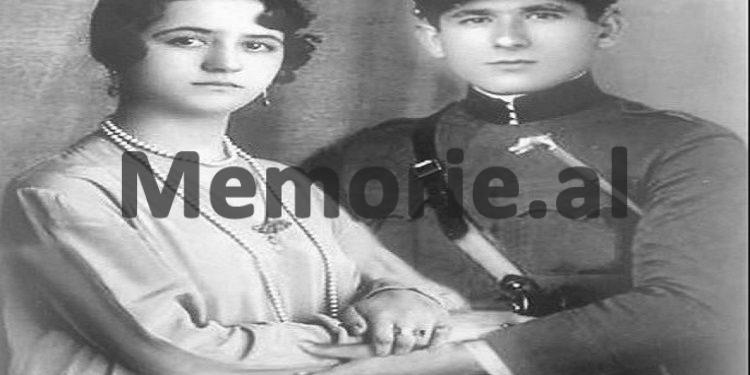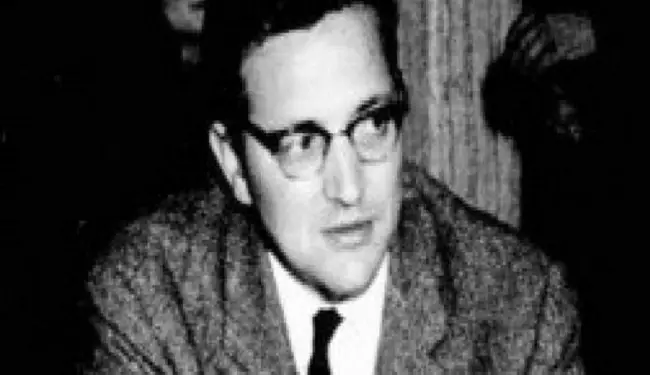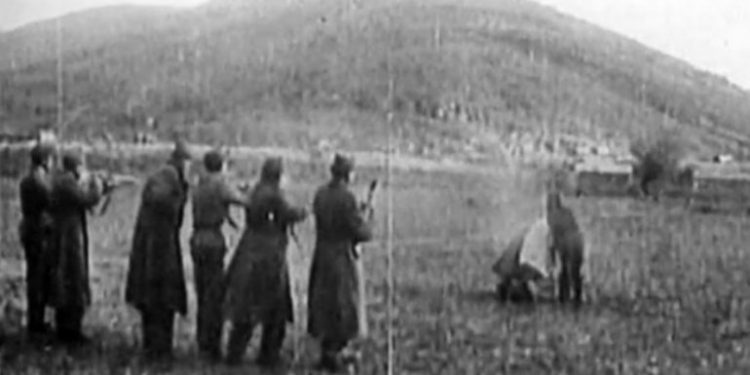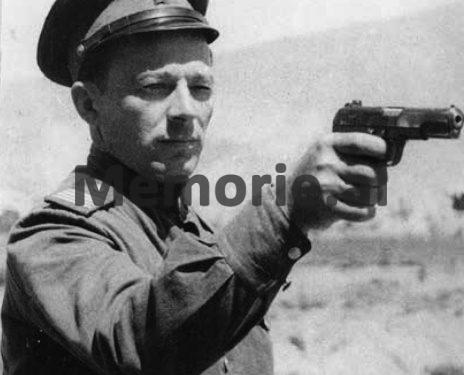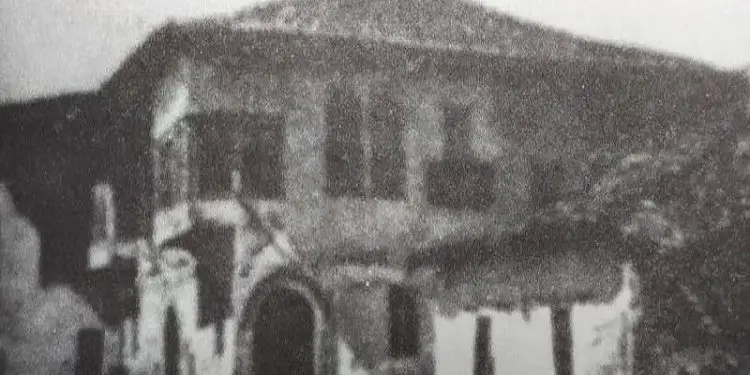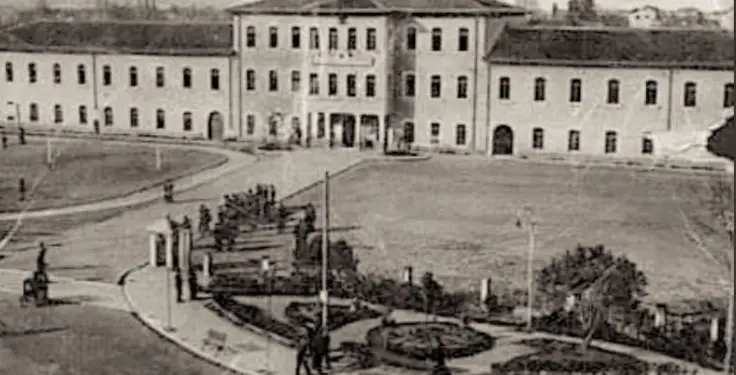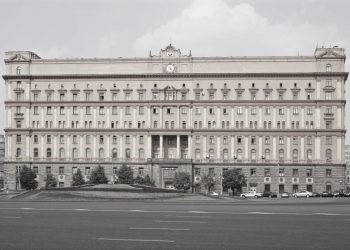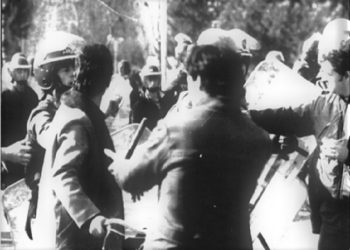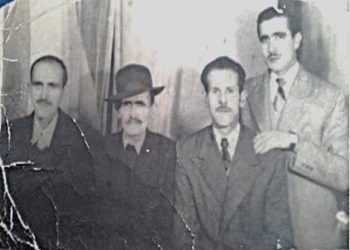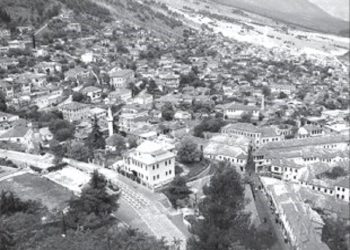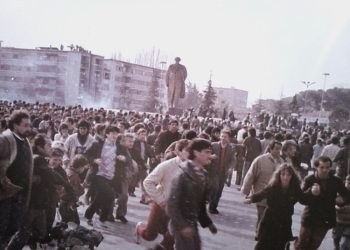By Tom Mrijaj, New York
Second part
Memorie.al / Like many outstanding patriots, who were covered by the dust of oblivion, the same fate followed the man and the unforgettable patriot, Captain Gjon Destanisha. He was executed in a barbaric manner by the security forces of UDB – of Yugoslavia, in the yard of Pristina Prison. From that day until today, it is not known where the remains of the martyr of Albanianism and anti-communism in Albania and Kosovo rest. The remains in his grave speak of consecutive murders that happened that day, when Serbian machine gun bullets took the life of the Zogist nationalist, career soldier, Captain Gjon Destanishte (1900-1951).
The shoulders, the only bone of the bone, show the cuba with a sign of blood on the forehead. Huta and Martina are hiding among the holes and caves because the tools of the Serbs have defeated them. Men have taken the mountains. Women have mail and sermt bats, for women ox collars. At night, he climbed up the mountain, loaded with hebe and bulera, to take bread to the brave among the caves. The State Security has taken over Bjeshke and Nemuna with gusto, as if for the sake of the Serbs.
There are over 400 men from Dukagjin among the mountains, from Qafë i Agri, to Ura te Strejtej, who do not hand over their weapons, weapons, or caves. They were closely related to me and I was killed and I did not fall into the hands of the communists. They are threatened with murder, looting, burning towers and huts, disappearance of sons to stay at home, without trials, extermination of the tribe, robbery of fertility and bread, slaughter of cattle, with poverty and poverty, and still they do not settle.
The fact that many provinces have stood with arms in hand to avoid being trampled by the communists, they have fought to the southernmost corners, but the province of Dukagjin will occupy a special place in the pages of that glorious history. The resistance of the people there was very active, long, with incomparable bravery, heroic and always incompatible with the communist government, at least until 1948. Every inch of that land was covered with blood. Bajraktars, voivods, houses in the za for honor, manhood, faith and bravery of the finger have stood for centuries as a shield.
The influence and the great role of the Catholic Clergy, mainly the Franciscan one, in the formation of the patriotic spirit cannot be excluded. They had the Fé-Atdhé formula, with which the mountaineer was born and died, as indisputable and unshakable against any fortune. This and this alone was the reason that the mountaineer could not agree with communism. This was also known by the communists. Several times Enver Hoxha has spoken and written, even among his “works”, he emphasizes the anti-communist stance of Catholics.
In fact, it is the only thing where not a single line is true, because it is about these highlanders who have the facts of standing against him, as long as for 40 years, that “beloved and dear” leader, who was “lying knee with the people”, has never stepped on the land of Dukagjin with his feet, even that “legendary brave of the war”, the criminal Mehmet Shehu, who was the commander of the Northern Operation, had neither manliness nor bravery, he went with me he fought against the enemies of Şalja, that is, although he had the power and the weapons he was proud of, but they were always used behind his back, as with Prenke Cal, or when the patriots were bound hand and foot, disarmed, or captive, and always I’m catching up, like Llesh Marashi and his friends…!
Syl Martini is among the first to be shot, without trial, in front of the Church in Kodër Saint Gjergj, after he refuses to hand over his weapons, he informs them of the men among the mountain assemblies. He told them before the shooting: “What does the life of an Albanian need in the mountains, without weapons?” I don’t give them!”. So the killings began! In Palç i Nikaj – Merturi, when Father Mihillë Miraj finished the mass, the people from the church came out, the partisans of the Pursuit Forces, demanded from Fet Sadik, a man in his 70s, to hand over his weapons. Feta does not give them up, then gunshots are heard nearby behind a hill.
Partisans tell Feta that; when you don’t accept, they gave us the weapons, we shot the 30-year-old son, Marash, and his brother, Adem, (this was not true, but the guns had been fired, to fight Feta, so he showed me the weapons), then Feta He replied: “Mo’ brè, you had given the other son as well, but not the brother”, and he still did not hand over the weapons. Without Feta’s determination, the partisans shot over his body and left him bleeding and lying on the ground, leaving him there without a place. Thus the village became familiar with those who were called; “liberators”.
…Arrests also begin. In Shale, the bajraktar Kol Ndou is arrested, a few days later in Breg – Lumi, the secretary of the front of the Shkodra District, Spiro Pano (the organization under which the Communist Party was organized), organizes a meeting, where the Security enters and kills Mark Sadiku, of the bajraktar’s house. of Shala. The murderer N. P., is killed right there by Bal Mark, that’s how the rifle starts…! In order to stop the blood feud and the desecration of the province, the leader Kol Ndou, jumped on a rock and shouted: “In the name of God, men, with rifles”, and the rifles stopped. Of course, a man with such influence, who forbids fratricide, could not be left without handcuffs. His grandson, Prel Marku, ran away among the caves and one day he escaped with his family and never returned to his homeland, like many others in those regions.
The same thing is required with u ba, with Shoshi’s bajraktar, Lulash Gjeloshin, but something happened that Djekja doesn’t expect! Villagers swear, don’t accept the call of the Front (or the party). When the Pursuit Force went there, gunfire erupted and three Pursuits were killed. Bajraktari goes to the mountain. Along with him are six sons, the mountain falcons, who never lost sight of him. It took a long time for these brave men to attempt the pursuit, and during their efforts, five boys from the Bajraktar’s squad were killed. Prof. was also shot in Shkodër. Gjelosh Lulashi, with the “Bashkimi Albanian” organization, thus burned six people from a fireplace.
Only one son remained with Lulash, who, in order not to leave the tribe at all, forces Lulash to surrender. We pushed them in age and killed them in the spirit due to misfortunes, they didn’t shoot him, but they left him with a crack in prison, you sentenced him to 101 years. During his time in prison, they say that he lived alone, did not speak, but spent his time smoking or filling his pipe. Friends came to meet him and did not let him suffer materially, while his soul was troubled, there was no one to help him. He never recovered.
The danger of leaving the tribe is because many men have been forced to surrender. Just like Lulash Gjeloshi, Llesh Marashi and Prenke Cali are similar, as far as I know, but who knows how many others, who not only surrendered, but also shot their last sons, just like Prenke Cali. That’s what happened to a man, at the Breg-Lumi bridge, who was told in the cave: “Come, if you don’t give up for an hour, let’s shoot the 14-year-old boy”! He came faster. The criminal Xhemal Selimi was there, he broke the nuts with a revolver on the head of one of the shot. When the man of the mountain, Xhemali, surrendered, he killed his son before me, and then killed him. Their bodies were thrown into the Sala River.
When in Tirana it was thought that the resistance of the mountains was weakening, the opposite is happening among the mountains. Ejëll Gërdani told me, the caves were filled with other boys as they came. They were probably in the caves, rather than at home. The Pursuit Forces continued to kill because of the ignorance of the province, they went and fell like flies in milk, among the paths where their heads were flying, together with the “red star” on their foreheads. When he left the brigade, he was still shot as a deserter, so this work continued as long as it went. For this reason, in April – May 1946, Mehmet Shehu sends a brigade led by another known terrorist, Major Ndreko Rino.
The documentation of the Ministry of People’s Defense, which is still preserved today, best shows the massacres, the shootings without trial, the burning of houses and the reasons why these criminals were decorated and called; “Heroes of the People” and, unfortunately, they still have them today! (Read only the radiograms that came to the Ministry, from these areas!).
The newly arrived major began his duties at the “Union Assembly” of Shala and Shoshi at the new Dukagjini Bridge. There, four people were shot without trial, because they had not surrendered their weapons. In Vuksanaj, two others were killed, while in an effort with the Pursuit Forces, Zef Kol Prela was wounded, who was then treated, tortured in a cell by Xhemal Selimi and Sabri Shema, sent to Arani Çela in Shkodër, with a bullet in the forehead. Even Araniti is known as a terrorist; he carried out the order on March 11, 1948, and put him in line with other patriots, in Zallin e Kiri.
When Nik Sokoli forms the Committee for the “Liberation of Dukagjin”, a new phase begins. They surrounded Nika, but the bullet didn’t hit them, Ejelli said…! The agreement to organize a general uprising in the North begins. The connection of the highlanders with Muharrem Bajraktar, strengthened the belief in victory. Puka with Mirakajt, Mirdita with Markagjonët, and the immortal Alush Lushanaku, in central Albania, shocked the central government, which at this time strengthened even more the ties with “Tito’s Druze”, in order to realize common anti-Albanian interests.
With the premature explosion of the Postriba Movement, the plans failed. Although the plan suddenly failed, the highlanders continued their resistance. As the war came, it became fiercer. Arrests and shootings did not stop for a moment. The escapes continued without a break. The reason was the break with Yugoslavia. The Pursuit Force was tripled. Many highlanders desert from military mobilization. Many join their companions among the mountains. Some escaped. Father Danjel Gjeçaj escaped from the hands of the communists, we were informed by a mountaineer, about arrest…!
One of the most memorable battles is the one at Palaj i Shoshi, where even though the commander of 87 armed men, Mark Mala, was wounded, the war continued bloody and with the shameful escape of the Pursuit Forces, which left several dead. in that battle. The efforts and endurance of officer Martin Sheldija, Captain Gjon Destanisha, Col. Mark Toma, Ded Mirash Zefit (killed in August 1946), Mëhill Ndoja, etc., are an epic in the glory of those mountains. Not only do we not know this epic, but we can’t even find it written anywhere… by whom…?!
Prof. Martin Camaj together with Captain Gjon Destanisha escaped from Albania
The pursuit forces had penetrated deep into the North of Albania and many anti-communists had completely left the country, since further resistance had become impossible, Captain Gjoni, with a large number of friends, decided to leave (with fake passports) towards Yugoslavia. In the composition of this group, there were these nationalists: captain Gjon Destanisha, Lazër Pali, the writer, Prof. Martin Camaj, Father Daniel Gjeçaj, OFM, Nik Sokoli, and many others.
Upon leaving Yugoslavia, they were handed over to local government bodies. But the investigators, before long, found out from the local spies who these people were who had escaped from Albania and without hesitation, imprisoned them. During the verification, the senior Serbian communist officials saw that among them was Captain Gjon Destanisha, whom they had been looking for for a long time to arrest and shoot. John was kept for a long time, in the cold cell rooms, near the famous Pristina prison.
The well-known historian and publicist, Nue Oroshi, according to the memoirs of his contemporary, Gjok Spaçit, describes the endurance of Captain Gjon Destanisha, in the prison of Prishtina, in the book “Testimony of the Times”, on pages 108, 109, 110. After all these sufferings of long, the group of nationalists of the “Second Connection of Prizren” (held in historical Prizren, in September 1943) was transferred to Pristina prison, where they were given a formal trial, which sentenced them to severe imprisonment.
So on the day of the trial (with closed doors) in Pristina, four accusations were brought against him by the prosecutor of the case, for the liquidation of 25 Serbian-Montenegro communist youths. John, who knew from the beginning the purpose of the trial, with an ironic smile, told them: “No, I have not killed 25 Serbs – Montenegrins as you say, but 50 and more…”!
The peculiarity of the trial is that Captain Gjon Destanisha was kept locked up and tied with a heavy chain, out of fear of the communist authorities of the prison, that he could burst and escape from the cell. They knew his ability and had taken measures so that the “caught bird” would not escape from their hands. Their trial lasted only three days, while on the fourth day, a draconian sentence (allegedly) of 6 to 20 years in prison was pronounced. He was given the capital punishment: firing squad.
But the story is not covered with a sieve. Witnesses and contemporaries of the great nationalist, captain Gjon Destanishes, speak again; “In the prison of Pristina, – remembers Gjok Spaqi, – we also found a sworn nationalist, but unfortunately short-lived. This was Captain Gjon Destanisha, sentenced to death, who was wearing 25-inch handcuffs and was in the room, at the end of the door. As he himself told us, Gjoni had chosen this place himself, so as not to annoy his friends, with the weight of those heavy irons.
This Gjon Destanisha, at the time of Albania, had been the captain of a platoon of soldiers and gendarmes, to clear the country of communists and Serbs, and in Suhadol, in a town near Lipjan, where the communists and the Dražistas had their nursery, he had perform a nice action. We do not know how he was caught, but he was sentenced to death.
His attitude during the trial had been manly and unbreakable. Also, until the last night of his life, he gave courage to all the prisoners, but the behavior of the prisoners towards him had been more than brotherly, even before the nationalists were there. As for the food items that we like, we give the best to Gjoni. His conversations were full of ideals and he told us that; boys, be sure that you will achieve your goal”!
Here’s how Gjok Spaqi explains the shooting of Captain Gjon Destanisha, whose family, after this article, will soon know that their martyred son Gjon Destanisha was shot near the walls of Pristina Prison, one night, at one o’clock midnight.
“When all the prisoners were asleep, the door was opened, three people entered without uniforms and in a low voice, they woke John from his sleep and told him; come with us, because they are calling you to the directorate, because the decision has come, in your interest. John said; Yes, I know, they tried to get him out without speaking, but Gjoni spoke these words to us last night: ‘Man, I’m sorry, thank you for the help and respect you have shown me. Don’t be upset at all’. They grabbed him and took him out of the room and closed the door, close to the corridor, they had the blacksmith behind him and broke his handcuffs.
The sounds of the hammer were heard, when Captain Gjoni said to the magician: “Behave well”. When they went out into the yard, they heard Gjon’s words twice more: ‘Rrnoft Shqinia’, ‘Rrnoft Çamëria’, but when they were about to say to me for the third time, ‘Rrnoft K…(Kosova!)’, the barrage of bullets stopped him for half, the word was left as soon as it started.
After five minutes, two bursts of machine guns were heard behind the prison wall. It was done with John. At that moment, the face of all the nationalists was like a candle flame, tears poured from our eyes like rain, and not only from us, but from all the Albanians who were in that room, except for the Stalinists. We haven’t eaten bread for three or four days, because of the pain of losing that idealist”!
Gjoni left behind his wife Nina, son Nikolin and three daughters, who experienced the terrible drama of Enverian communism, in prisons and concentration camps, for many years. Gjon’s eldest daughter, Fjora, was lucky enough to leave earlier and immigrate to America, where she married the Albanian-American soldier, Fran Sokol.
Both young newlyweds were from two families known for high anti-communist values. They had the same “fate” as Fjora and Frani; Young Fran, one day, the UDB kidnapped his father, Smajl Qerim Sokol, in Istog i Peja, where since that day, his grave is not even known. At a young age, Fran remained on the roads of the world, enlisted as a Marine in the US Army. He served for many years in Germany, where duty and service required him, under the American flag. His goal was to one day take revenge for his father who disappeared from UDB – and his father-in-law, who was captain Gjon Destanisha.
Gjon’s son, Nikolini, lives today in Shkodër, in his father’s house. In the period after the 1990s, he joined the ranks of the Legality Movement party in Shkodër, being elected for many years as its chairman for the Shkodra branch and a member of the Legality Movement Presidency in Tirana. With the advent of democracy, he returned home, after many years of imprisonment and exile. Nikolini is married and has two sons and a daughter. One of his sons, inherits the name of his grandfather, and is called; John Destanisha.
Fjora, the eldest daughter of the “Martyr of Democracy”, Captain Gjon Destanishte, is married to Fran Sokol, lives in New York. Also Gjorgjeta, married to the former political prisoner, Luigj Kabashi, who had spent many years in prisons and concentration camps in Enver Hoxha’s Albania, are now in New York, and Albina, married, in the Bushati family, who lives in Shkodër. Memorie.al




